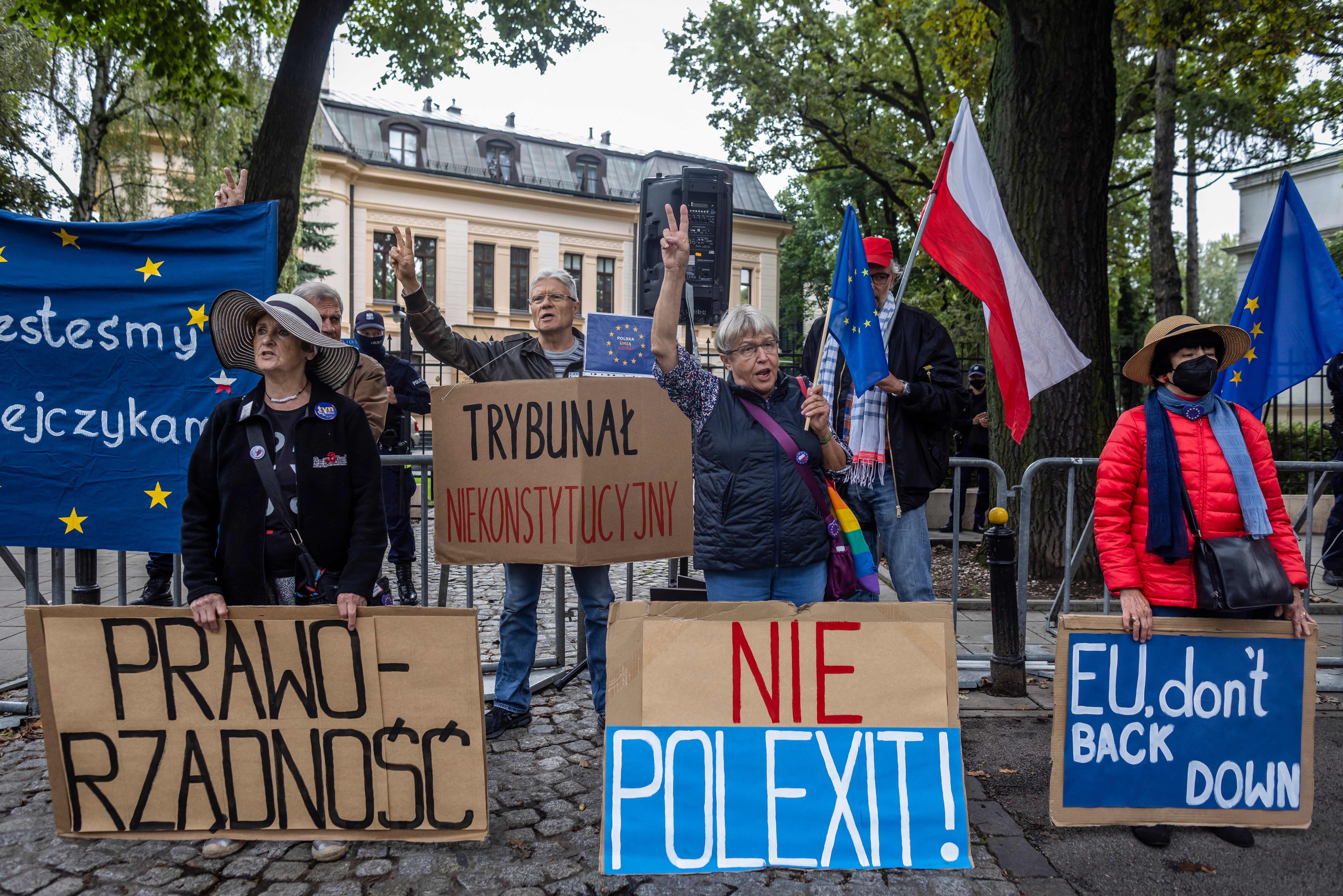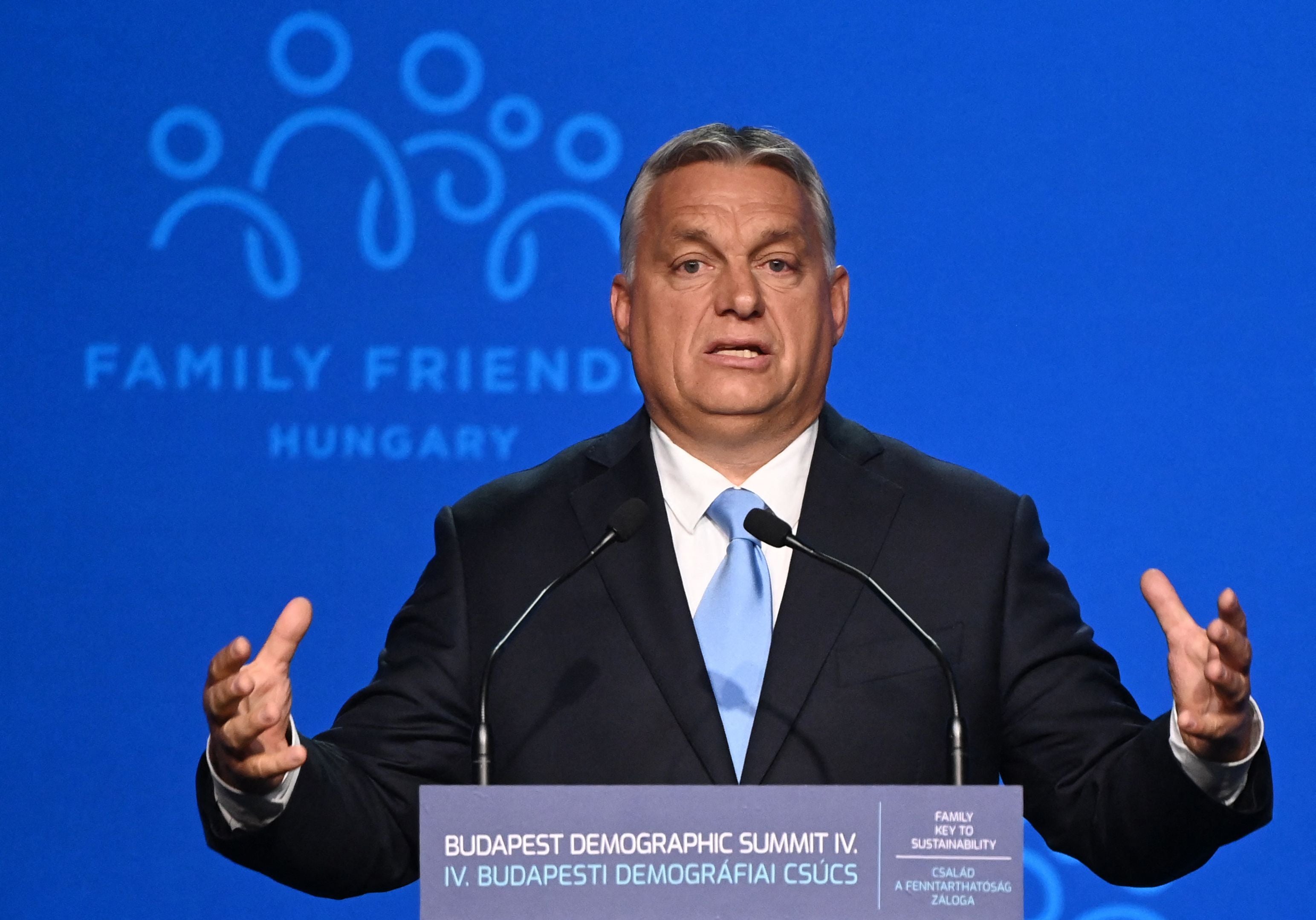Will tougher EU sanctions lead to human rights turnaround in Hungary and Poland?
The EU’s tentative plans to withhold regional aid funds from the two countries if they fail to make changes on human rights is a high risk strategy, but may prove the only effective course, writes William Nattrass

Backsliding on human rights and the rule of law in Hungary and Poland is causing concern throughout the EU, with tensions between national governments and Brussels even raising doubts over the countries’ continued membership of the bloc.
Now, the EU’s response to rebellious right-wing governments is stepping up a gear.
Brussels is examining ways to use economic sanctions in its fight against governments in Poland and Hungary alleged to be undermining human rights.
Both countries have been involved in disputes with the EU over rule of law issues including allegations of discrimination against LGBT+ people and questions over judicial independence.
The European Commission is now discussing withholding critical regional aid funds from those countries, over provisions related to the bloc’s charter of fundamental rights, which have been made part of its budget legislation.
The EU’s openness to withholding these “cohesion funds”, intended to even out economic disparities between richer and poorer member states, comes as a shock.
The bloc has already agreed a mechanism tying the distribution of budget funds to the rule of law – but making cohesion funds contingent on human rights compliance would raise the stakes even higher. The move would put at risk enormous sums of EU money allocated under the EU’s latest budget from 2021 to 2027: €121bn (£103bn) for Poland and €38bn for Hungary.
The EU is already playing hardball with Poland and Hungary by refusing to approve their pandemic recovery plans, worth tens of billions of euros, over rule-of-law concerns. Brussels has also asked for daily fines to be imposed on Poland as punishment for failure to disband a controversial judicial chamber, which it says breaks EU law.
Polish politicians have described the EU’s stance as “an attack on the Polish legal order”.
The Hungarian government has said that the main reason for staying in the EU is the funding
But with European Commission Vice President Vera Jourova saying the bloc is taking the implementation of its power to withhold funds “very seriously”, the Polish and Hungarian governments may soon have to put their money where their mouth is.
Questions are now being asked about the implications of withholding cohesion funds on the political landscape in Hungary and Poland.
“Money is clearly a sensitive point. The Hungarian government has said that the main reason for staying in the EU is the funding,” Gábor Győri, from the Hungarian Policy Solutions think tank, told The Independent.

“Viktor Orban is very good at using EU aggression to support his own agenda, suggesting that the EU is trying to take over Hungary, remove its sovereignty, and make it a vassal state. A move like this from the EU could make it easier for Orban to mobilise his own supporters,” he added.
With Hungarian elections approaching next year, it is possible that withholding cohesion funds could strengthen negative perceptions of Brussels.
“When it comes to public opinion, the EU is at a clear disadvantage because it cannot campaign or engage in the debate within Hungary itself,” Gyori points out.
The [Hungarian] government is unlikely to make any concessions to the EU until after the election, but afterwards they will be inclined to settle the issue should they win the vote
Orban may spy an electoral opportunity in Brussels’ tough stance, making him unlikely to water down his own position until the elections are over.
“The government is unlikely to make any concessions to the EU until after the election, but afterwards they will be inclined to settle the issue should they win the vote,” Patrik Szicherle, policy analyst with Political Capital, told The Independent.
“Orban has long been successful at negotiating solutions with the EU and has always agreed to walk back on the most controversial points of his proposals,” he added.
Hungary’s human rights dispute with the EU is centred on its treatment of LGBT+ people.
Orban’s government introduced a controversial Child Protection Law earlier this year to restrict the dissemination of LGBT-related content in education and the media. Human rights campaigners say the law is already having a chilling effect.
“In the two months since the adoption of this law, complaints about content portraying homosexuality or gender change in the media have multiplied by seven,” David Vig, Amnesty International Hungary director, told The Independent.
“The number of cases of bullying in the workplace, in schools and among neighbours has also increased,” he added.

In Poland, LGBT+ rights are similarly at risk. A number of regional authorities in the country introduced so-called “LGBT-free zones” to resist “LGBT ideology” in 2019.
Human rights disputes with the EU also focus on the country’s controversial legal reforms, which are alleged to undermine the right to a fair trial by threatening the independence of the judiciary.
The EU is concerned about human rights on both fronts. But for many on the Polish right, Brussels increasingly stands for a form of western ideological imperialism which sits uneasily with the nation’s past.
“Many right-wing intellectuals in Poland claim the country has a more ‘eastern’ political culture,” Tomasz Pawłuszko, from Poland’s Sobieski Institute, told The Independent. “There is far more acceptance of power in the traditional ‘eastern’ sense than there is for EU ideals of governance, procedure, law, expertise, compromise and meritocracy.”
Yet tougher financial punishments from Brussels would test the mettle of the ruling PiS government, which despite its increasingly eurosceptic rhetoric has already tried to backpedal on some of its controversial legal reforms.
“If recent developments are anything to go by, PiS seem likely to follow a typical path: create conflict, shout loudly, then ‘lose with honour’ and blame evil external forces,” continued Pawłuszko.
An EU decision to withhold cohesion funds would undoubtedly put the convictions of eurosceptic governments to the test. By escalating conflicts between eastern EU members and Brussels, it could have serious implications for forthcoming Hungarian elections while moving discussions of “Polexit” further into the mainstream of Polish politics.
The move would be a significant political risk. But lawmakers in Brussels looking to safeguard human rights may see this gamble as one they are morally obliged to take.






Join our commenting forum
Join thought-provoking conversations, follow other Independent readers and see their replies
Comments